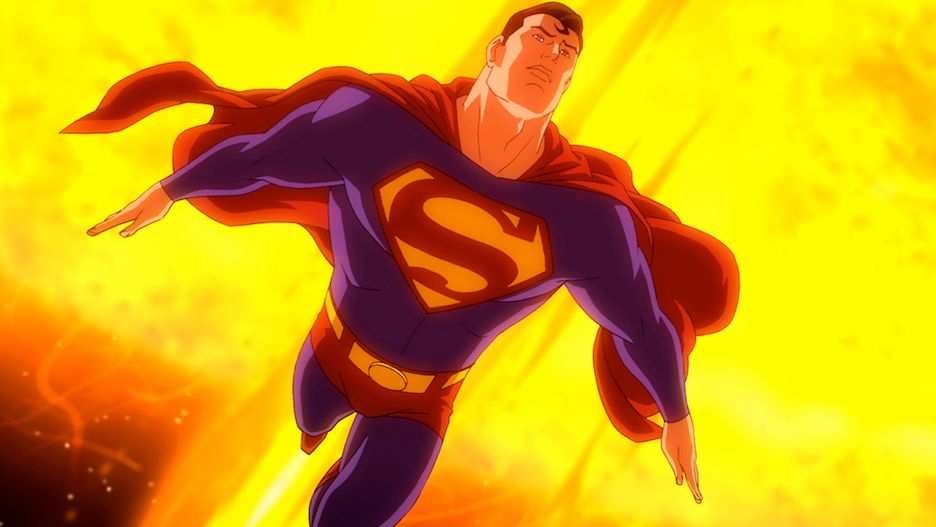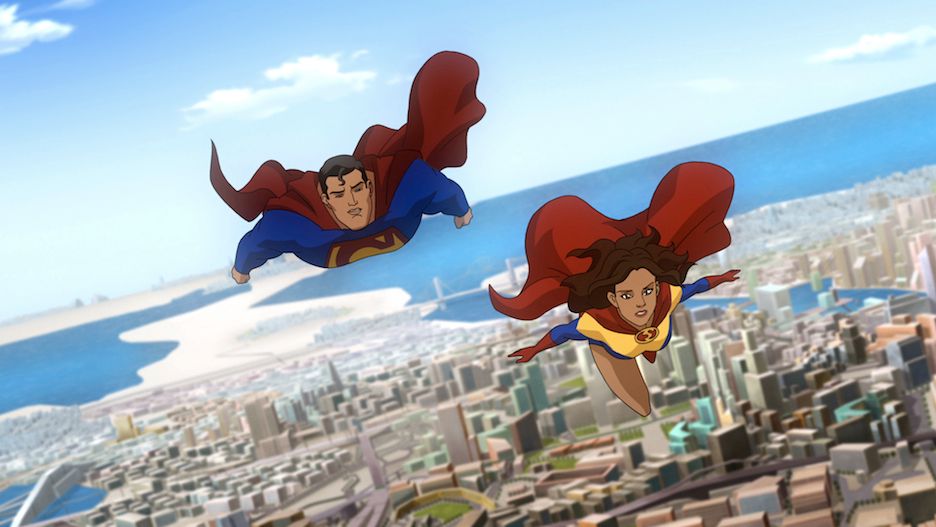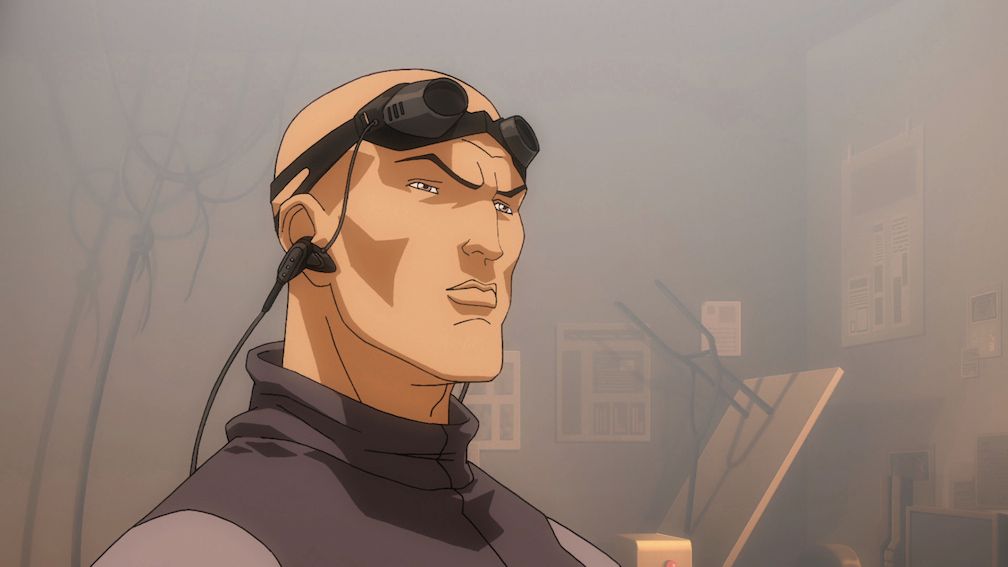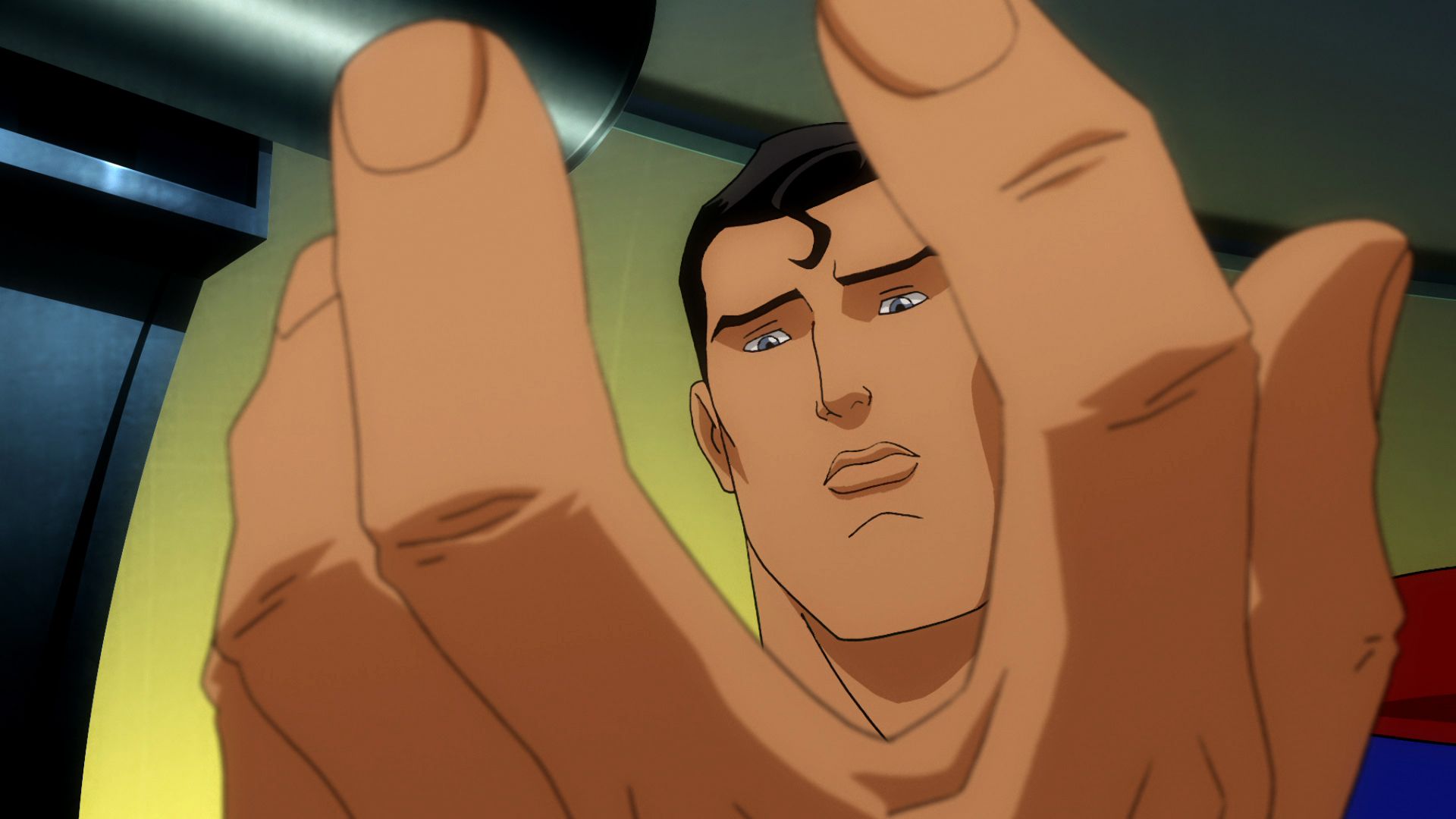Warner Bros' animated adaptation of Grant Morrison and Frank Quitely's All-Star Superman is so reverent and faithful toward the source material that the film, to a certain extent, feels like a pale copy of its inspiration.
That's not necessarily a damning criticism. Bruce Timm and company took the right approach in attempting to get as close a conversion from page to screen as possible (to do otherwise would have pleased no one). But the comic itself is so rich in detail and episodic in nature that even a trim, streamlined version like this that still manages to hit a number of the right high points feels a bit flabby in comparison. Saying "the book is better" is a rather easy cheat for a critic -- the book is almost always better, but I suspect that fans of the comic won't be able to watch this without running a compare/contrast checklist in their head and find the film coming up a wee bit short. The good news is that those coming fresh to the material probably won't notice anything wrong at all.
I wasn't kidding when I said the film is as faithful to the comic as possible. Screenwriter Dwayne McDuffie lifts the dialogue verbatim from the comic whenever he has the opportunity, and he has plenty of them. What's more, while the animation is a bit sleeker and cleaner than Quitely's rough, minimalist pen lines, the animators do their best to mimic the artist's unique character expressions, posture and body types throughout the film and copy his panel composition whenever the opportunity arises. Many fans will no doubt thrill at seeing sequences like Superman kissing a super-powered Lois on the moon not only animated but done as a near-xerox copy of the original, iconic panel.
More importantly, director Sam Liu manages to maintain the overall contemplative tone and atmosphere of Morrison and Quitely's masterpiece. It's certainly one of the most subdued, nakedly sincere and emotional films they've ever done, at least compared to past WB/DC films like Under the Red Hood and Superman/Batman: Apocalypse. Matching and maintaining this sort of wistful, inspirational attitude from the comic without coming off as corny or false must have been exceedingly tricky, so kudos to Liu and company for getting that rather essential part right.
Indeed, certain sequences, like Clark Kent's interview with Luthor in prison manage to capture the comic's balletic farce rather well while still adding some of new bits to it. Occasionally they even manage to top the comic -- there's a gag involving Superman's star-dense Fortress of Solitude key that actually works better animated than it did in print.
But with only a 76-minute running time, it's not terribly surprising that a number of sequences would get edited out. As one might expect, the film hones its focus on the Superman/Lex Luthor/Lois Lane triangle, with (in case you're not familiar with the over-arcing story) Superman finally falling terminally ill to one of Luthor's traps and attempting to put his affairs in order, especially with Lois, before his time is up.
The comic, of course, was as much an ode to the classic Superman stories of the past as it was an exploration of the character itself and what makes him so mythic. Thus, the filmmakers attempt to nod toward this by inserting some of the less plot-essential sequences like the battle of wits between Sampson, Atlas and Superman. The one sequence that unfortunately sticks out like a sore thumb is the one involving the Kryptonian astronauts Bar-El and Lilo. It's not one of my favorite bits from the comic, and my own preference would have been to ditch that for perhaps the Jimmy Olsen sequence in issue #3 instead, or something from issue #10, where he cures children's cancer, creates a new pocket universe and saves a girl from committing suicide. The choice to include Bar-El and Lilo makes thematic sense -- their arrogant behavior provides a nice contrast to Superman's own humility -- but it does underscore the original material's episodic nature and make the film feel like it's trying to take a deep breath before moving on to its finale.
I usually don't have much to say about the voice work in these films unless I hate it, but everyone does a rather good job this time around. James Denton and Christina Hendricks give a nice gravitas to their characters and the interplay between them works rather well. Special note, however, should be given to Anthony LaPaglia, who nails Luthor's quiet arrogance and jealousy rather well.
Usually the special features sections of these DVDs are an embarrassment, with lots of unwarranted self-congratulation and allegedly in-depth looks at the histories of various characters and comics that are as shallow as dishwater. For once, however, the supplemental materials are worthwhile.
The main feature is a documentary titled "Superman Now" that features Morrison talking about the origins of the original 12-issue comic and how it came together, as well as a video segment where he shows off his original sketches for the series and talks about how they evolved over time. Even if you've heard Morrison talk about these things in past interviews, it's still entertaining to see him mull over them once again.
There's also a commentary track featuring Morrison and Timm that vacillates between insightful and glad-handed compliments, where each tells the other how much they love their work. Despite the schmoozing and occasional quiet lapses, there are notable moments, as when Morrison talks about the larger themes he was trying to address in the comic or Timm talks about how tricky it was to capture Quietly's style in animation. It's especially interesting to note Timm's hesitancy about whether this more subdued, thoughtful type of material will play well before the traditional superhero fanboy audience. Would the same crowd, he asks, that cheered at the violence on display in Red Hood appreciate a more restrained film like this? I'd like to think so, but it seemed telling to me that Timm took the time to pose the question at all.
There's also a preview of the next DCU film, a hodge-podge of Green Lantern stories titled Emerald Knights, no doubt designed as a tie-in to the upcoming live-action film. The most notable (and, honestly, unsurprising) revelation was that they plan on adapting Alan Moore's "Mogo" story. They'd kind of be silly not to.
Despite my reservations, All-Star Superman is an entertaining movie and should please fans whether they've read the original mini-series or not. But there's also no doubt that the film's struggles to capture the particular mood of the comic and determine what to prune and what to keep make the film's pacing a bit bumpy, to put it charitably. It would have been nice to expect a film equal in stature to the comic -- nice, but unfair and more than the WB animators could no doubt execute given their financial limitations. At best the film is an enjoyable supplement, one that will allow fans to contemplate just what was so special about the original work that drew them toward it in the first place.




